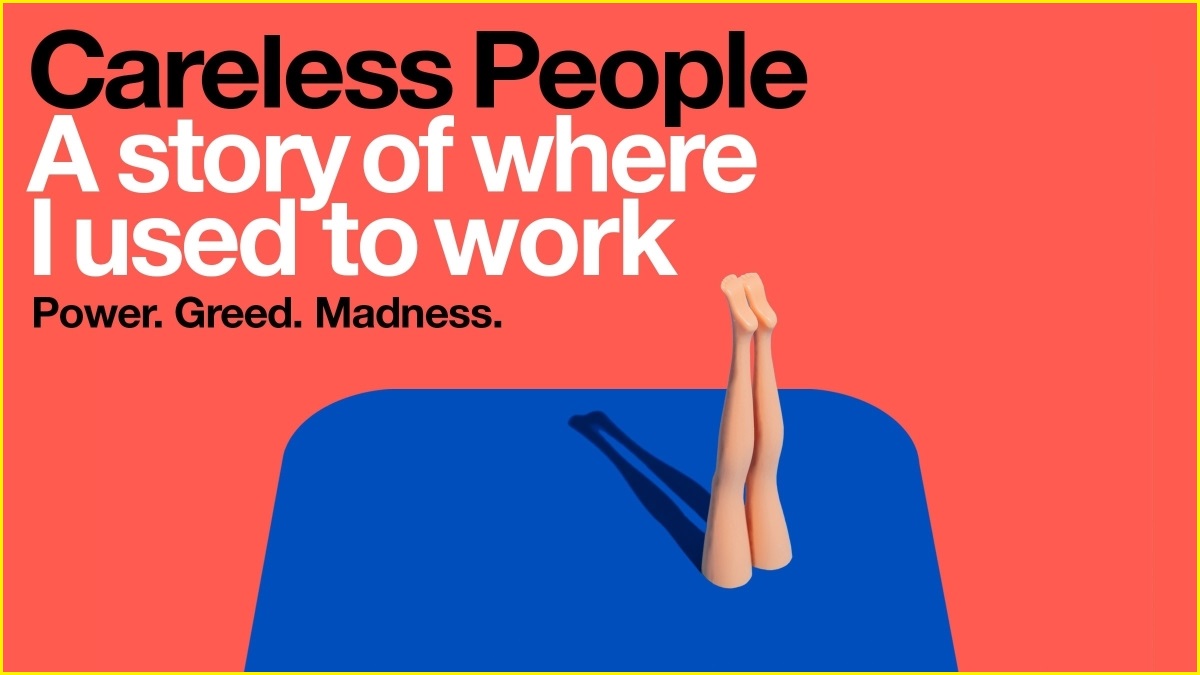Social media giant Meta is attempting to lessen the impact of a tell-all memoir by its former director of global public policy Sarah Wynn-Williams, titled Careless People, which the company alleges is “defamatory”.
Meta won an emergency arbitration ruling in the United States on Wednesday, where an absent Wynn-Williams was ordered to temporarily stop personally promoting or further distributing copies of her book.
The ruling did not prevent the publisher of Careless People, Flatiron Books, or its parent company Macmillan from distributing or promoting the memoir.
Wynn-Williams, who is also a former New Zealand diplomat, released Careless People last week with little prior publicity after working for Meta (formerly Facebook) between 2011 and 2017.
She has filed a whistleblower complaint with US regulator the Securities and Exchange Commission (SEC) alleging Meta misled investors, and has also made allegations of harassment, including claims of inappropriate comments by former colleague Joel Kaplan, who is now Meta's chief global affairs officer.
Meta has denied the allegations.
Andy Stone, a communications director at Meta, wrote on social media that the arbitration ruling, now shared on Meta’s website, “affirms that Sarah Wynn-Williams’ false and defamatory book should never have been published”.
Stone accused Wynn-Williams of deliberately concealing the existence of her book project for “more than eight years after being terminated by the company” and avoiding "the industry’s standard fact-checking process in order to rush it to shelves”.
Meta, for its part, is currently ditching fact-checking on its platforms in a controversial move to “drastically reduce censorship”.
'We are appalled by Meta’s tactics’
Publishing house Macmillan has described Wynn-Williams's memoir as exposing “the personal and political fallout when boundless power and a rotten culture take hold”.
In a statement posted on Meta platforms Instagram and Facebook on Friday, Flatiron Books and Macmillan said the arbitration ruling had “no impact” on its work, and it would “absolutely continue to support and promote” the book.
“We are appalled by Meta’s tactics to silence our author through the use of a non-disparagement clause in a severance agreement,” the companies said.
“… The book went through a thorough editing and vetting process, and we remain committed to publishing important books such as this.”

Sarah Wynn-Williams is temporarily prevented from personally promoting or distributing 'Careless People'. Photo: Sarah Wynn-Williams / Supplied
The book’s local publisher, Pan Macmillan Australia, told Information Age the US arbitration order would not impact its ability to sell the book.
“For a company that claims free expression is the driving force behind progress around the world, this is an extraordinary — and contradictory — step,” the company said.
Meta would have suffered “immediate and irreparable loss” if it was not granted emergency relief, arbitrator Nicholas Gowen wrote in his ruling after the Los Angeles hearing.
Gowen ordered Wynn-Williams to not to make any “disparaging, critical or otherwise detrimental comments” regarding Meta, its employees, or products.
While Wynn-Williams has been temporarily prevented from taking part in the book’s publicity, the memoir's rise to notoriety has been seen as an example of the so-called Streisand effect — a term used to describe when efforts to hide information unintentionally cause the public to become more aware of that information.
Wynn-Williams wants to ‘pull back the curtain’ on Meta
Prior to Gowen sharing his findings, the BBC broadcast an interview with Wynn-Williams, who said she wrote Careless People “in part” to “pull back the curtain and show some of the decision-making and moral compromises that go on at a company like [Meta]”.
Wynn-Williams described Meta as moving from a “chaotic” workplace to a “much tighter operation” in the years she worked there, but also one which was now “much more controlled by the people at the top”.
She said the company was “run like an empire”, with founder and chief executive Mark Zuckerberg at its head.
Careless People has also made claims about the behavior of other Meta employees, including its former chief operating officer, Sheryl Sandberg.

Image: Pan Macmillan / Supplied
Wynn-Williams told the BBC she was not a disgruntled former employee as Meta had alleged, and “really cared” about the company.
Meta has previously said Wynn-Williams was fired for “poor performance and toxic behaviour”, and had made false allegations about its executives.
The company has accused her of trying to profit from selling books and of being paid by what it called “anti-Facebook activists”.
In a document published to its website earlier this month titled “Careless Reprint”, Meta outlined a series of topics in Careless People which it believed made the memoir a “new book of old news”.
Many of Meta’s arguments refuted Wynn-Williams's claims about how the company allegedly planned to enter the Chinese market, which the author suggested led Meta to consider allowing the Chinese government to censor and control some content in that country.










